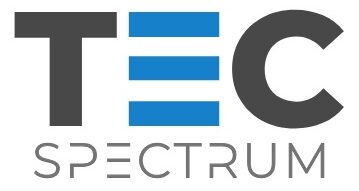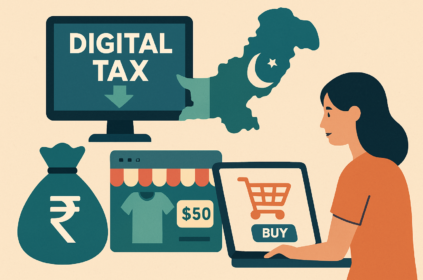In a rapidly evolving digital economy, Pakistan’s e-commerce sector is experiencing unprecedented growth. However, recent government policies imposing tax deductions on e-commerce operators and merchants have sparked concerns among commercial banks. The new tax policy, introduced in the FY25 budget, aims to generate additional revenue from online transactions but has faced implementation hurdles due to the absence of automated tax collection mechanisms. This article delves into the reasons behind the banks’ request for a deferral, the challenges in implementing these taxes, and the broader implications for Pakistan’s booming e-commerce landscape.
Why Are Banks Seeking a Tax Deferral?
Absence of Automated Tax Collection Systems
Commercial banks in Pakistan have formally requested a deferral of the newly imposed tax deductions on e-commerce operators and merchants. According to industry sources, banks currently lack the infrastructure to automate tax deductions for digital payments. Unlike traditional banking transactions, where tax mechanisms are well-established, the dynamic nature of e-commerce transactions requires sophisticated systems to track and deduct taxes in real time.
- No Overnight Solutions: Developing a robust system for tax deductions is not an instantaneous process. Banks are grappling with the technical complexities of integrating tax collection into their existing payment gateways.
- Current Practices: As of now, banks are not deducting taxes from e-commerce operators or merchants due to the absence of an automated mechanism, leaving the responsibility to e-commerce companies to collect taxes from their customers.
Engagement with Regulatory Bodies
Banks have approached the Pakistan Banks Association (PBA) to communicate their concerns to the State Bank of Pakistan (SBP), the country’s banking regulator. The PBA has been a vital platform for coordinating efforts to address these challenges and seek a temporary deferral until banks can develop the necessary systems.
- Collaboration for Solutions: The PBA is working with banks to devise a strategy for implementing tax deductions without disrupting the e-commerce ecosystem.
- Temporary Deferral Request: The deferral is seen as a practical solution to give banks time to build capacity for seamless tax collection.
The New Tax Policy: What You Need to Know
Details of the Tax Policy
In the FY25 budget, the Pakistani government introduced taxes ranging from 2% to 5% on digital payments processed through local and foreign e-commerce platforms. These taxes target e-commerce payment gateways and merchants to tap into the growing revenue potential of online trading.
- Revenue Goals: The government aims to boost its tax revenue by capitalizing on the rapid growth of e-commerce, which has seen a surge in transaction volumes.
- Exemptions: Notably, the government has removed taxes on foreign online sellers and advertisements on social media platforms, focusing solely on payment operators and merchants.
Challenges in Implementation
While the policy is well-intentioned, its implementation has hit significant roadblocks:
- Lack of Infrastructure: Banks have not yet developed systems to automatically deduct taxes from e-commerce transactions, creating a bottleneck in compliance.
- Complex Ecosystem: The e-commerce sector involves multiple stakeholders—merchants, payment gateways, and customers—making tax collection a complex process.
- Customer Impact: In the absence of bank-led tax deductions, some e-commerce operators may pass the tax burden onto customers, potentially increasing costs for online shoppers.
The Booming E-commerce Sector in Pakistan
Growth Statistics
The e-commerce sector in Pakistan is thriving, driven by increased internet penetration, smartphone adoption, and a growing preference for online shopping. According to the State Bank of Pakistan, the third quarter of FY25 recorded remarkable growth in e-commerce activity:
- Transaction Volume: Over 213 million online payments were processed, reflecting a 40% growth compared to the previous period.
- Transaction Value: The total value of these transactions reached Rs. 258 billion, a 34% increase from the prior quarter.
- Registered Operators: Nearly 10,000 e-commerce operators are registered with banks, highlighting the sector’s scale.
Implications for Tax Policy
The rapid growth of e-commerce underscores the government’s interest in taxing digital payments. However, the lack of infrastructure could hinder the sector’s momentum if not addressed promptly. A balanced approach is needed to ensure that tax policies support, rather than stifle, this burgeoning industry.
Challenges for Banks in Implementing Tax Deductions
Technical Hurdles
Building a system to deduct taxes from e-commerce transactions is a complex task. Unlike traditional transactions, digital payments involve multiple layers, including payment gateways, merchant accounts, and customer interfaces. Banks face the following challenges:
- Real-Time Processing: Tax deductions require real-time tracking of transactions, which demands advanced software and integration with e-commerce platforms.
- Scalability: With millions of transactions occurring monthly, banks need scalable systems to handle the volume without errors or delays.
- Compliance Costs: Developing and maintaining tax deduction systems involves significant investment, which could strain smaller banks.
Coordination with E-commerce Operators
While banks work on building their systems, some e-commerce operators have started collecting taxes directly from customers. However, this approach is inconsistent and may lead to confusion among consumers. A standardized mechanism is essential to ensure transparency and compliance across the board.
Potential Solutions and Next Steps
Developing Automated Systems
Banks are actively working on solutions to address the tax deduction challenge. Some potential approaches include:
- API Integration: Banks could integrate tax deduction APIs with e-commerce platforms to automate the process.
- Collaboration with Fintechs: Partnering with fintech companies could accelerate the development of tax collection systems.
- Phased Implementation: A phased rollout of tax deductions could allow banks to test and refine their systems before full-scale implementation.
Government and Industry Collaboration
To ensure the success of the tax policy, the government, banks, and e-commerce operators must collaborate closely. The government could consider:
- Extending the Deferral Period: Granting a temporary deferral would give banks the time needed to develop robust systems.
- Providing Technical Support: Offering resources or incentives to banks could expedite the development process.
- Clear Guidelines: Issuing detailed guidelines on tax collection responsibilities would reduce confusion and ensure compliance.
Broader Implications for Pakistan’s Digital Economy
The challenges surrounding e-commerce tax deductions highlight broader issues in Pakistan’s digital economy. As the country aims to become a hub for digital innovation, addressing infrastructure gaps is critical. The success of the e-commerce sector depends on seamless integration between technology, policy, and regulation.
- Economic Growth: A well-implemented tax policy could generate significant revenue for the government, supporting public services and infrastructure development.
- Consumer Trust: Transparent tax collection mechanisms are essential to maintaining consumer trust in online shopping.
- Global Competitiveness: By addressing these challenges, Pakistan can strengthen its position in the global e-commerce market.
For more insights into Pakistan’s digital economy, check out our article on The Rise of Fintech in Pakistan or explore the State Bank of Pakistan’s latest report on digital payments.
Conclusion
The push for e-commerce tax deductions in Pakistan reflects the government’s commitment to capitalizing on the digital economy’s growth. However, the lack of automated systems has prompted banks to seek a deferral until they can develop the necessary infrastructure. With e-commerce transactions soaring, addressing these challenges is crucial to maintaining the sector’s momentum. By fostering collaboration between banks, regulators, and e-commerce operators, Pakistan can create a robust framework for tax collection that supports both economic growth and consumer trust.














